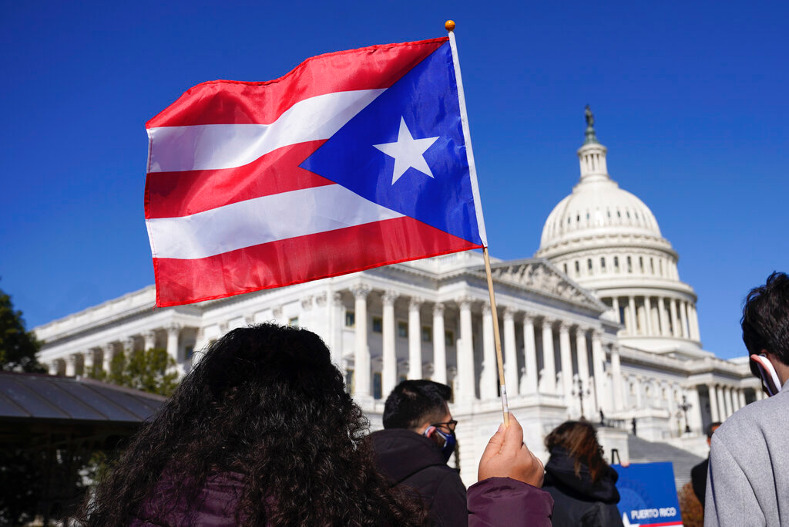
After a triumphant victory against the Spanish in 1898, the United States set its eyes on the territory of Puerto Rico, a small island with economic and geopolitical potential. After acquiring the land of Puerto Rico from Spain, the United States gave it an odd label: “Unincorporated territory.” Inhabitants of the island now had American Citizenship. So, much like their mainland counterparts, they’d have the same privileges, right? Not exactly. Due to numerous political factors, such as the historically racist “Insular Cases,” which saw those of unincorporated territories as unfit to receive the same privileges as mainland Americans, Puerto Rico has kept its territory status.
As citizens within a territory, island Puerto Ricans don’t get Congressional representation, nor do they receive the ability to vote federally. They can move freely throughout the United States and pay less federal taxes, this much is true, but they also receive less Medicaid and have no Supplemental Security Income.
Overall, the system treats island Puerto Ricans like second-class citizens and classifies them as unworthy of the same capabilities as Americans within the state. These limitations have had their impact on the island and its inhabitants. The forty percent poverty rate, awful natural disaster response, the 5.8 million mainland-based Puerto Ricans as opposed to the 3.2 million island-based Puerto Ricans, and the government corruption on the island reflect this. It’s hard to deny that the island needs some sort of change. Congress must admit Puerto Rico into the union as a state in order to give islanders a more equitable life in relation to inhabitants of official states.
As with most things in the political sphere, the debate over statehood does not consist solely of binary decision-making from Congress. The voice of island inhabitants perhaps plays the biggest role in Puerto Rico’s future, mostly with the recent passage of a bill in the House in late 2022 that would allow Puerto Rico to decide on its own status via a binding referendum. Though the outcome of this referendum won’t be known until late 2023, past referendums can at least somewhat reflect the desires of Puerto Ricans. In 2020, a non-binding referendum showed that 52 percent of Puerto Ricans desired statehood, whereas 48 percent did not. Within that 48 percent, no distinction between independence, free incorporation, or maintaining the status quo was made. Though the majority vote does not dwarf those that did not desire statehood, it still shows a large quantity of Puerto Ricans want statehood. As a democratic nation, mostly one that runs under a plurality rule, Congress should grant Puerto Rico statehood under that condition alone.
This simple approach to the situation does not capture enough of the picture, though. We must take more factors into account. The status quo does not provide enough for the island, but the question of independence or statehood still hangs in the balance. Puerto Rican statehood allows island inhabitants to maintain the same benefits they currently have while obtaining ones they don’t have as an unincorporated territory, something independence does not accomplish.
The primary issues in Puerto Rico stem from federal neglect. As previously stated, Puerto Rico lacks a voice in the national playing field. Statehood enfranchises them at the federal level by granting Puerto Rico the ability to vote in federal elections, and, most importantly, a representative in Congress. The president would have to worry about another state’s interests in his decisions, and other Congresspeople would have to factor in the Puerto Rican vote. Statehood would provide Puerto Rico with a voice at the largest governmental stage. The government would better cater to Puerto Rico’s interests. Puerto Rico also would receive more funding from federal welfare programs. Though taxes would rise, the safety net of increased welfare would offset it. With better public programs in place, a tragedy like Hurricane Maria may not have devolved into the chaos it did. Poverty would not riddle the island as general economic security would rise. More natives to the island would feel more inclined to stay rather than look for greener pastures in other states. Though statehood may not directly affect the corruption Puerto Rico has faced, more federal attention as a state could give them the resources to weed it out.
Statehood provides Puerto Rico with the political leverage and resources it needs to solve the problems it grapples with. The status quo has done nothing but worsen the situation on the island. Independence does not tackle the core problems. Puerto Rico lacks power, and statehood would provide that. As a state, Puerto Rico has the potential to flourish.
